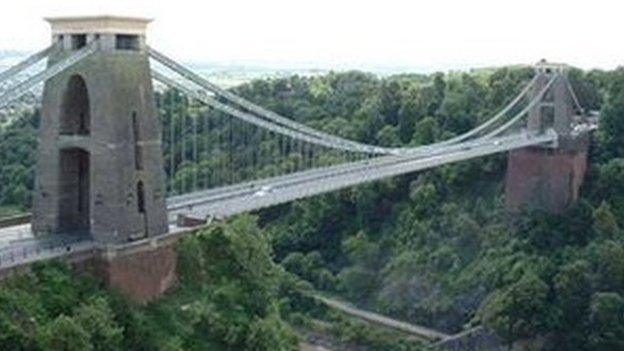Whale sculpture marks Bristol's Green Capital status
- Published
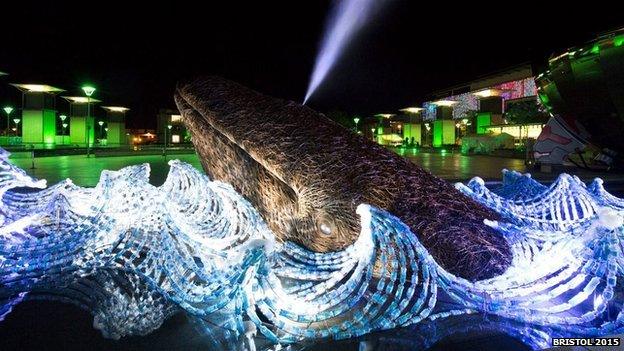
The sculpture includes 70,000 plastic bottles
A sculpture of two life-size whales, made from Somerset willow and 70,000 old plastic bottles, has been unveiled in Bristol.
The artwork, named The Bristol Whales, has been installed in Millennium Square to mark the city's status as European Green Capital.
It represents the threat of plastic pollution in the world's oceans, particularly plastic bags and food and drink packaging, organisers said.
It will be on show until 1 September.
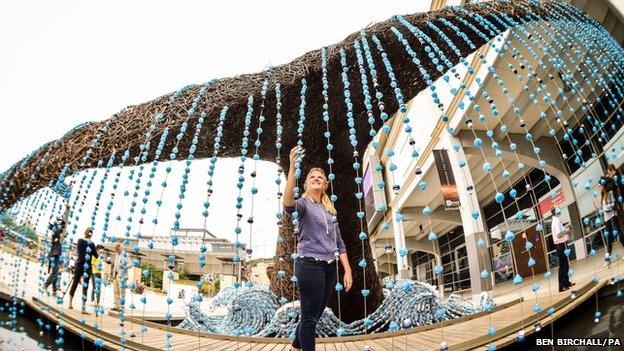
The six-tonne sculpture depicts a blue whale and a humpback whale swimming through an ocean of "upcycled" bottles, collected from the Bath Half Marathon and Bristol 10k race.
A Green Capital spokesman said the sculpture was "encouraging people to act now to reduce their consumption of single-use plastics and help protect our oceans for future generations".
He said Britons spent over £1.5bn on bottled water every year and sent 15 million bottles to landfill every day, and globally eight million tonnes of plastic ended up in oceans each year - equivalent to the body weight of 45,000 blue whales.
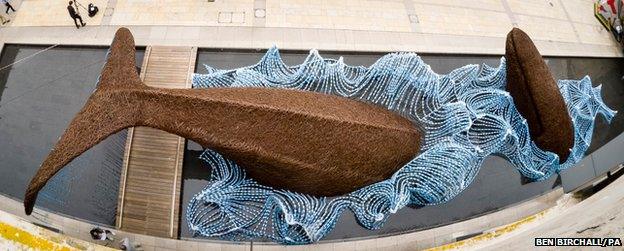
Sue Lipscombe, from Cod Steaks, which designed and built the artwork, said: "Whales are intelligent, beautiful, charismatic animals - they've become symbols of the world's oceans.
"They have a physical strength but they also represent resilience, the potential for recovery, provided we - as custodians of the oceans - take the right steps to protect them.
"We're confident that this sculpture will fuel discussion and debate about plastics in the ocean."
Bristol became the first UK city to be named European Green Capital when it took over from Copenhagen at the start of the year.
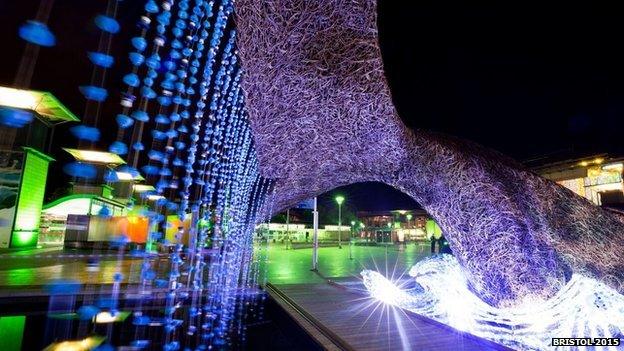
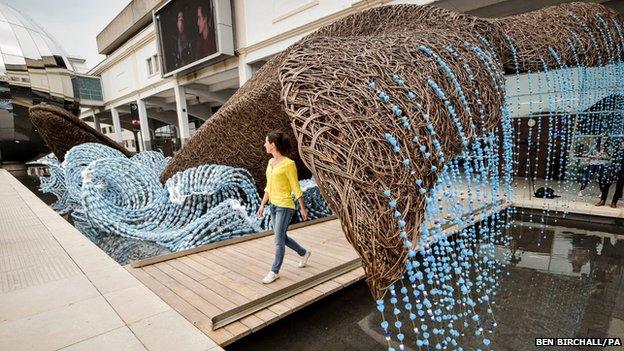
- Published8 December 2014
